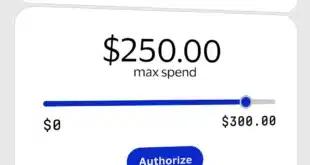Mobile-wallet usage is expected to increase in 2019 as almost 2.1 billion consumers worldwide choose the payment option, predicts Juniper Research Ltd.
In its “Mobile Wallets: Service Provider Analysis, Market Opportunities & Forecasts 2018-2022” report released Wednesday, United Kingdom-based Juniper notes that next year’s forecasted number of mobile-wallet users is nearly 30% more than the 1.6 billion at the end of 2017.
PayPal Holdings Inc. ranked at the top of the list in 2018, Juniper says, followed by Alipay and WeChat Pay, both popular wallets from China-based providers that rely on Quick Response (QR) codes.

Juniper said in an accompanying white paper on QR codes that researchers in Hong Kong were able to gain access to a phone’s camera to record an image of a QR code. “As a result, the People’s Bank of China confirmed in December 2017 that it would be introducing plans to regulate payments by QR codes and other scannable codes,” Juniper said.
A clampdown may have started with regulators imposing a daily transaction limit of 500 yuan (US$79), reports NFC Times, an online publication.




